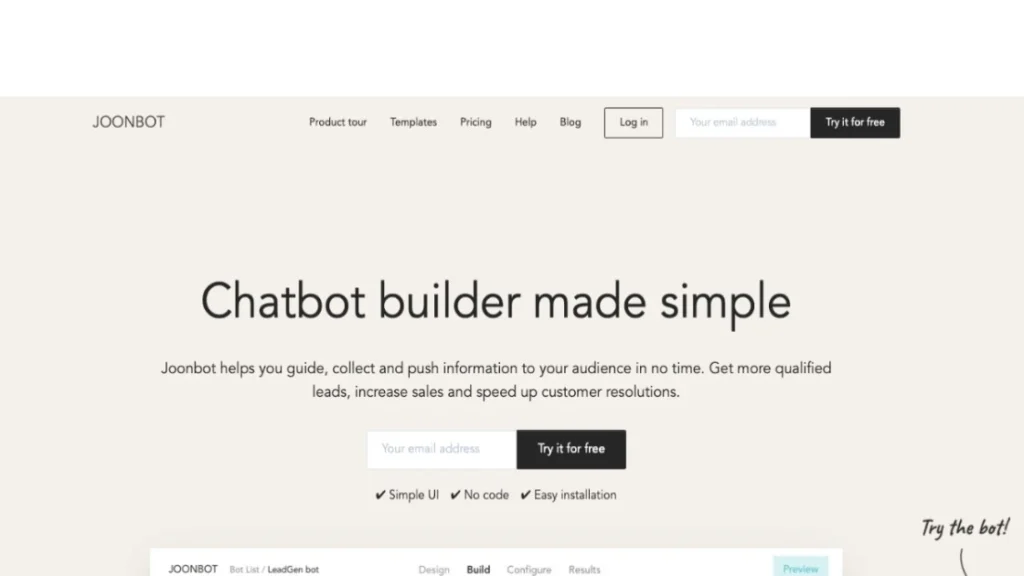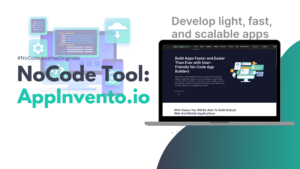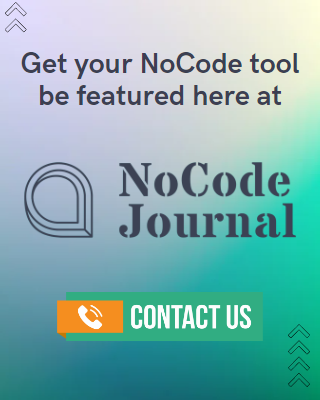NoCode Tool: ToolJet
- Tia Parker
ToolJet is an open-source LowCode framework to build and deploy internal tools quickly without much effort from the engineering teams. It is an open-source alternative to Retool, Internal.io, Blazor, etc. ToolJet is built using Ruby on Rails and ReactJS.
ToolJet can be connected to your data sources such as databases like PostgreSQL, MongoDB, Elasticsearch, etc.; API endpoints like importing OpenAPI spec and OAuth2 authorization; external services like Stripe, Slack, Google Sheets, Airtable; and use pre-built UI widgets to build internal tools. Having connected all the data sources, ToolJet can run queries on them to fetch and update their corresponding information. The visualized results of these queries are easily editable with UI widgets such as tables, charts or forms that make it easier for any user in charge – whether they’re a business analyst looking at some sales numbers who needs more detailed info than what is available out-of-the box; an architect designing new buildings who wants better floor plans based off input from architects before construction begins; etc.
ToolJet is a tool in the LowCode Platforms category of technology. It has many benefits, such as being able to create and edit code without using traditional programming languages or tools like Visual Studio which can be difficult for some people who are not tech savvy enough with these kinds of things.
ToolJet is a cutting-edge, open-source tool with features that make it stand out from other similar projects. It has gained popularity on both GitHub and at an early stage in its life cycle because of its innovative design as well as functionality.

Table of Contents
ToggleThe Man Behind ToolJet
Navaneeth Pk is the Founder of ToolJet. He is from Bangalore, Karnataka, India. He is a Software Engineer, a Developer and an Entrepreneur. Aside from ToolJet, he is also the Founder of SendOut.io, WanderWhale, MobioPush and Smartweb Innovations.
Features:
·Visual app builder with widgets such as tables, charts, modals, buttons, dropdowns and more
·Mobile &desktop layouts
· Connect to databases, APIs and external services
· Deploy on-premises (supports docker, kubernetes, heroku and more)
· Granular access control on organization level and app level
· Write JS code almost anywhere in the builder
· Query editors for all supported data sources
·Transform query results using JS code
· Import endpoints from OpenAPI specs
·All the credentials are securely encrypted using aes-256-gcm.
·ToolJet acts only as a proxy and doesn’t store any data.
· Support for OAuth

Who Uses ToolJet?
·Companies
·Developers
How ToolJet Works?
ToolJet has just 3 fundamental principles to build apps:
·Connect to data sources: Connect to your existing data sources such as PostgreSQL, MySQL, Firestore, Stripe, Google Sheets, API endpoints, etc.
·Build queries: ToolJet comes with query builders for all supported data sources. ToolJet also supports the use of custom JavaScript code to transform the query results.
· Customise widgets: Widgets are the UI components that can be edited using ToolJet’s visual app builder (E.g.: tables, charts, forms, etc.) Widgets have events such as on click, on row selected, on page changed, etc. Every UI widget has a dark version.
What is LowCode?
It is a no-code development platforms that requires no coding. Low-code platforms supports custom code (E.g.: JavaScript code is supported by ToolJet) for added flexibility.
Why use NoCode platforms for building internal tools?
·Time/Speed – Building applications using NoCode tools are extremely time-efficient.
·Cost – NoCode tools requires only minimal engineering resources. Companies can use their talented engineering resources for building the core product.
·Maintenance – Deploying and scaling tools made with NoCode tools doesn’t require any DevOps skills, deployments are just a click away.
Why open-source?
Data Privacy
To build internal tools using NoCode platforms, the platform needs access to the databases and other datasources. Sharing data with third-party tools isn’t something that companies are comfortable with. Companies that are concerned about data-privacy thus build their internal tools using frameworks such as ActiveAdmin, DjangoAdmin, etc. that can be hosted within the premises. But the tools like ActiveAdmin are designed to work with a single database as the data source and extending the software is difficult as the underpinnings are tightly coupled with libraries like ActiveRecord. ToolJet can be self-hosted and can connect to multiple datasources.
Flexibility
Whenever a SaaS application is introduced to an organization, there has to be some changes in the process to accommodate the application. With open-source tools, the companies have the freedom to extend/modify the software according to their needs.
No vendor lock-in
You can do anything with ToolJet’s code and host it anywhere.
Community
Open-source products evolves around the community of users and developers. Thus, is product is being actively improved to become a better product.
You can even fix the bugs yourself
With proprietary software, a lot of feature requests and bug reports goes straight to the deep freezer to be prioritized after ages. Sometimes these feature requests are for minor changes, but the company might not do it as it is not needed for other customers. With open-source software, you can always check the status of an issue and you can fix the issue and send a pull request or if the change is specific to your organization, you can maintain a fork of the software.
ToolJet Integrations
Here are some of the popular tools that integrate with ToolJet:
· Docker
· Slack
·MySQL
· MongoDB
·PostgreSQL
·Redis
·Kubernetes,
·Elasticsearch
·Heroku
·Stripe
·Amazon DynamoDB
·Google Sheets
·Cloud Firestore
·OpenAPI
ToolJet’s Pricelist
·BASIC $0 (free) per user/per month. Up to 2 applications. Up to 2 users. No user roles.
·STARTUP $5 per user/per month. Unlimited applications. Up to 5 users. There are user roles. There is email support.
·BUSINESS $15 per user/per month. Unlimited applications. Unlimited users. There are user roles. There is a priority in email support.
·ENTERPRISE Custom and Billed annually. Unlimited application. Unlimited users. Granular access control. Priority phone support. Can audit logs. SSO. Custom connectors

CONCLUSION
ToolJet is a NoCode platform for building & deploying custom internal tools. ToolJet is built using Ruby on Rails and ReactJS. ToolJet can connect to existing data sources of companies such as databases, Google sheets, API endpoints, external services, and more. ToolJet’s drag and drop app builder can quickly create UI widgets such as tables, charts, forms, etc. and connect these widgets with the data from data sources. It is made because its Founder Navaneeth Pk believe that the tools that require access to sensitive data should be self-hosted (data never leaves the premises) and open-source (modify the software to fit organization-specific requirements.) And true enough, ToolJet has proven itself to be less complicated and lesser price than its counterparts. All these great features and pros is what makes it a cool tool.
Share
follow us

NoCode Products Within AI And ML

NoCode Tool: GroundControl

Nocode Tool: Hive
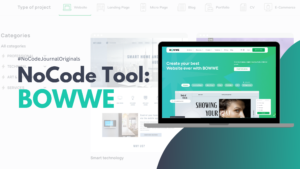
NoCode Tool: BOWWE
Explore related posts


The Importance Of OutSystems PoCs
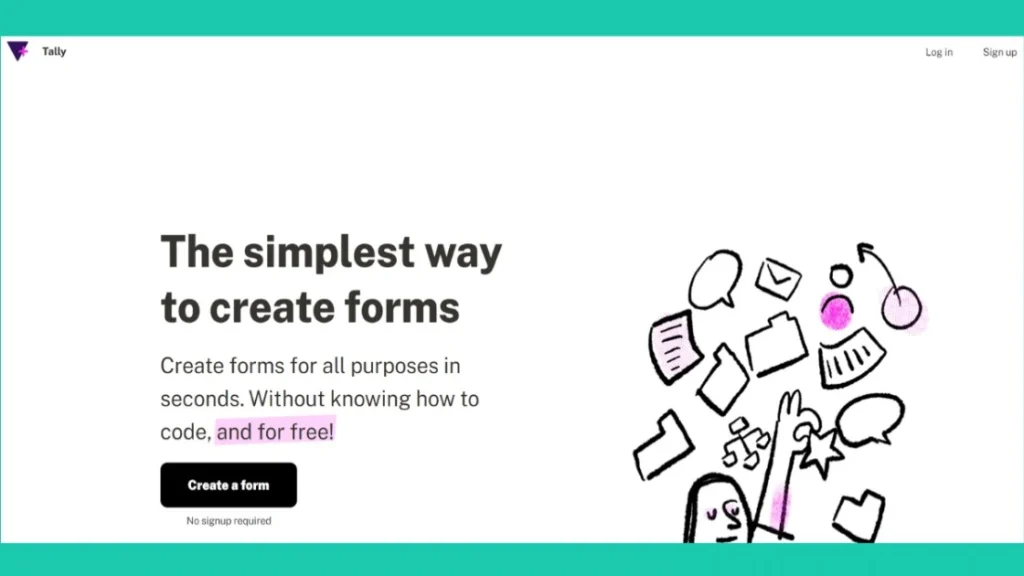
NoCode Tool: TallyForm
